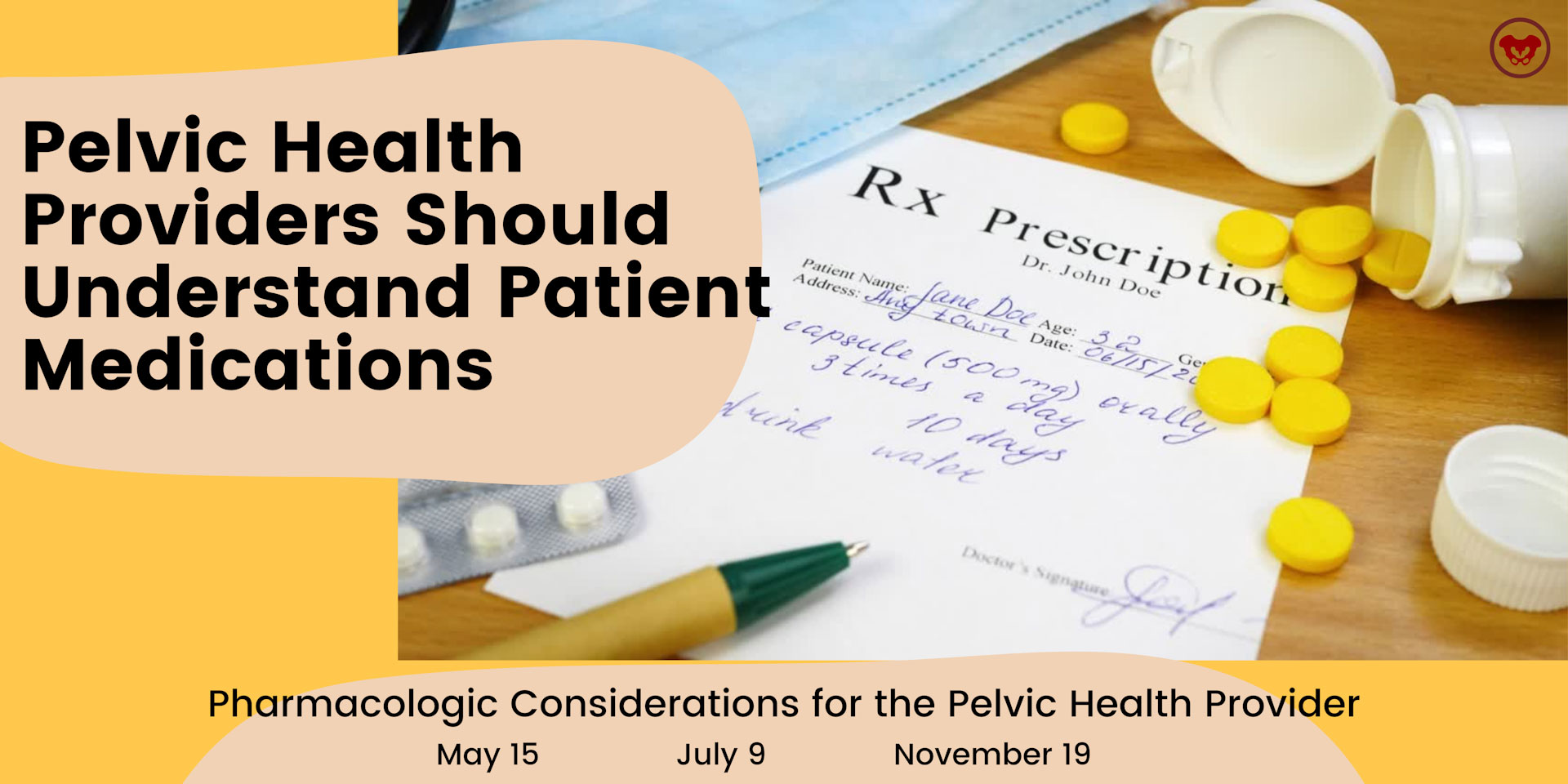
The HW admin team has been hard at work filling speaker spots, building breakout sessions, and creating fun new experience ideas for the upcoming 2025 conference.
If you're into pelvic health then this is the conference for you. HWConnect was created to provide a top-tier networking event for pelvic rehabilitation practitioners that focuses on providing a safe environment for professional development, exposure to new products, and sharing inspiration for all things pelvic health.
HWConnect features keynote speakers, breakouts, labs, and educational sessions. Topics range from pediatrics with Dawn Sandalcidi to gender-affirming care with Ken McGee. HWConnect is all about connection - the name says it all. Network. Learn. Grow. Repeat. 
Registering is as easy as 1, 2, 3!
- Complete online registration.
- Book travel and lodging. HWConnect will be held at the Hilton Seattle Airport & Conference Center and HW has special pricing set up for attendees.
- Show up, and don't forget to stop by and say hello to all of your favorite HW team members!
Need More Information?
- Keynote Speakers are the indomitable Dawn Sandalcidi, PT, RCMT, BCB-PMD (she/her), Nancy Norton, RN (she/her), and Leticia Nieto, PsyD, LMFT, TEP (she/her).
- Speakers include Ken McGee, PT, DPT (they/he), Dr. Cindy Mosbrucker (she/her), Meryl Alappattu, PT, PhD (she/her), and Carole High Gross, PT, DPT, PRPC (she/her).
- Breakout sessions, workshops, and labs include yoga, meditation, rehabilitative ultrasound imaging, squat analysis, and MORE - all led by your favorite HW faculty including Dustienne Miller, Nari Clemons, and Allison Ariail.
- HW proudly welcomes second-time conference sponsor CMT.
- Vendor Hall featuring exhibitors including Intimate Rose, Slippery Stuff, and Raise the Pelvic Floor.
- Non-profit booths feature the Kenya Scholarship Foundation and Open Arms Perinatal Services. Read this past blog to learn more about the Kenya Scholarship Foundation.
- Special Podcast Guests feature Callie and Rachel from Pelvic Service Announcement (PSA) and Courtney from Raise the Pelvic Floor.
For more information and a full lineup check out the HWConnect 2025 page!
Already Coming to HWConnect?
That's amazing!
Herman & Wallace would love your help spreading the word about HWConnect 2025 and the chance to connect with the amazing people in our community. Check out this page where you can review and share all the programming we’ve booked thus far. https://hermanwallace.com/connect-2025
We look forward to seeing you at HWConnect 2025!

Today The Pelvic Rehab Report is featuring two short interviews with instructor teams Alyson Lowrey & Tara Sulivan who teach Pain Science for the Chronic Pelvic Pain Population, and Sandra Gallagher & Caitlin Smigelski who teach Transgender Patients: Pelvic Health and Orthopedic Considerations.
The Pain Science for the Chronic Pelvic Pain Population instructors Alyson N Lowrey, PT, DPT, OCS &Tara Sullivan, PT, DPT, PRPC, WCS, IF answered the following two questions:
What Is Pain?
All pain occurs in the brain. Whether it is from acute tissue injury, nerve injury, or chronic pain, all pain has to be interpreted by the brain. How do you explain to a patient that their pain may not be from tissue damage, but from their brain interpreting something as painful that shouldn’t? While their pain may be in their brain, it is NOT in their head!
Pelvic pain is complicated because of a phenomenon called pelvic organ cross-talk. Your brain has a really hard time determining which pelvic organ or muscle is having pain or sensations, so signals can get crossed. Patients can present with uterine pain that can cause bowel or bladder pain and vice versa. We commonly see this with endometriosis and interstitial cystitis. Another example is the prostate and bladder. Prostatitis may present as an overactive bladder. This makes our jobs more difficult because we have to be able to determine the true source of a patient’s pain and understand that their pain may not be coming from an obvious source.
What is pain neuroscience education (PNE) and how can it be used?
Pain neuroscience education (PNE) is the explanation of the neurophysiological changes in the central nervous system to patients that have chronic pain. It is explaining pain, sensitization, and all the factors that can be contributing to their pain and abnormal sensations.
PNE typically decreases the threat value of pain, diminishes catastrophic thinking about pain, and facilitates a more active coping strategy. In the Pain Science for the Chronic Pelvic Pain Population, you will leave with the tools to combine pain science education with current interventions for a more effective treatment.
The Transgender Patients: Pelvic Health and Orthopedic Consideration instructors Sandra Gallagher, PT, DPT, WCS & Caitlin Smigelski, PT, DPT answered the following two questions:
What made you want to create this course?
We created this course on rehabilitation in gender-affirming care in 2018 because, at that time, nothing like it existed. We had learned so much from working with patients preparing for surgery and knew we need more information. Through attending conferences, we had opportunities to talk with experts in the field including surgeons, endocrinologists, primary care physicians, and social workers. Combined with researching additional topics, we made the course we wish we could have taken: a course that bridges physical rehabilitation considerations with medical and surgical information on transgender care.
Today, many brief courses and videos about gender-affirming care exist. You can now find courses and videos that address trauma-informed care, language aspects of gender-affirming care, and physicians and surgeons speaking on their procedures. We think this is great and encourage people to continue to seek out these learning opportunities! Our goal is to expand on the perspective of the rehab professional by offering a course that has both depth and breadth.
Our course has evolved to a hybrid format with pre-recorded self-paced lectures and live webinar content. We know that some participants are well versed in LGBTQ topics and are trained in providing trauma-informed care. For other participants, our course may be the first time they are exploring topics like sex, gender, sexuality, trauma-informed care, and gender-affirming language. The content in the pre-recorded lectures allows participants to work at their own pace, whether it is review or brand new information and allows everyone to have a similar foundation when we meet for the live portion.
What is your message to practitioners about gender-affirming care?
Our message to participants who are just starting their journey on gender-affirming care is to remember that gender is not genitals and that undergoing gender-affirming procedures is not strictly about sexual activity options. Sometimes people get so focused on the genital surgery or changes, that they forget the person. Every patient's path will be a bit different and there is more to gender-affirming care than peri-operative rehab.
Keep learning! Engage with professional organizations like WPATH, watch videos featuring gender diverse individuals, practice language with coworkers, and attend grand rounds. Many university hospitals now have virtual rounds that are available live or as recordings. There is so much information available if you search for it!

Pain Science for the Chronic Pelvic Pain Population
Course Date: October 8-9, 2022
Price:$400
Experience Level: Beginner
Contact Hours: 12
Description: This course is designed to expand the participant's knowledge, experience, and treatment in understanding and applying pain science to the chronic pelvic pain population including endometriosis, interstitial cystitis, irritable bowel syndrome, vaginismus, vestibulodynia, primary dysmenorrhea, and prostatitis. This course provides a thorough introduction to pain science concepts including classifications of pain mechanisms, peripheral pain generators, peripheral sensitization, and central sensitization in listed chronic pelvic pain conditions; as well as treatment strategies including therapeutic pain neuroscience education, therapeutic alliance, and the current rehab interventions' influence on central sensitization.
Lecture topics include the history of pain, pain physiology, central and peripheral sensitization, sensitization in chronic pelvic pain conditions, therapeutic alliance, pain science and trauma-informed care, therapeutic pain neuroscience education, the influence of rehab interventions on the CNS, and specific case examples for sensitization in CPP.

Transgender Patients: Pelvic Health and Orthopedic Considerations
Course Date: October 8,2022
Price: $500
Experience Level: Beginner
Contact Hours: 17
Description: This course is appropriate for any physical rehabilitation professional, regardless of their specialty area, who has an interest in better serving people who are gender diverse. There is specific content aimed at teaching pelvic health therapists how to expand their skills for working with people of all gender identities. There will be particular education regarding gender-affirming genital surgeries as well as discussion of other gender-affirming surgeries and medical interventions that people transitioning might choose.
Often times therapists think of genital surgeries and sexual function when contemplating work with transgender people. However, therapists have far more to offer transgender patients. For providing optimal care, knowledge of the intricacies of gender transition is essential. We provide that overview in this course. Topics covered include:
- Societal influence on gender transition including interactions with health care providers
- Recognizing difference between sex, sexuality, and gender
- Understand the complexities of the legal system for the person transitioning gender
- Tips and tools for a trauma-informed intake and examination
- Health effects of hormones for gender transition as related to differential diagnosis in rehabilitation
- Supporting healing after gender-affirming surgery
- Operative procedures for face and chest
- Operative procedures for masculinizing and feminizing genital surgery
- Pre-operative evaluation, treatment, and education issues
- Post-operative evaluation, treatment, education, and follow-up for genital surgeries
- Outcome measures with rehab focus for people undergoing gender-affirming surgeries
- Fertility and pregnancy in gender diverse people.

Kristina Koch, PT, DPT, is a board-certified women’s health physical therapist and certified lymphedema therapist who is the author/instructor of the remote course Pharmacologic Considerations for the Pelvic Health Provider. She has been treating pelvic health dysfunction in all ages and genders since 2001. Kristina works in private practice in Colorado Springs, CO, and has served as a guest lecturer for the pelvic health content at Regis University in Denver and the University of Colorado.
Did you know that the median length of time a primary care provider spends with a patient is 15 minutes? This breaks down to approximately 5 minutes for the patient to talk about their health concerns and 5 minutes for the health care provider to speak, with the rest being applied toward paperwork (1). After this appointment, the patient may not be seen again for several months or even a year. Medication side effects that impact the patients’ quality of life, or create new symptoms, can be easily overlooked.
I created the course, Pharmacologic Considerations for the Pelvic Health Provider because, with direct access to physical and occupational therapy services, a greater responsibility has been placed upon the therapist to take on more of a role as a primary care provider. We must ensure that all factors contributing to a patient’s signs and symptoms are considered. This includes reviewing and assessing if medications or supplements may be causative.
As therapists, we typically spend more time with our patients than their primary care providers. We are seeing them for longer periods during a treatment session and will see them numerous times throughout a month or longer. As a result, our patients have a greater opportunity to discuss their signs and symptoms with us versus their physician or primary care provider. Therefore, understanding how medications may be impacting a patient is essential. Being able to educate the patient about the side effects of the medications they are taking and how the medications may be contributing to their complaints can enhance the value of the treatment session.
By possessing this knowledge and understanding of the medications that are prescribed to treat pelvic health, therapists can have educated conversations with our patients and other health care providers involved in their care. The ability to discuss the most recent medications and supplements or complementary alternatives, that may minimize side effects or have fewer impacts on quality of life and enhance function, is an integral part of patient care.
Join Kristina to dive into Pharmacologic Considerations for the Pelvic Health Provider. This one-day, virtual course will discuss the importance of understanding pharmacology and review commonly prescribed medications. Kristina also spends time explaining current research pertaining to the pharmacologic treatment of numerous pelvic and reproductive health conditions, medication side effects, drug interactions, and non-pharmacologic alternatives. Medications discussed include those for constipation and GI dysfunction, pelvic pain conditions (including vulvodynia, chronic prostatitis, and endometriosis), as well as medications and side effects in Gender-Affirming Care for patients who are transitioning.
Upcoming 2022 course dates for Pharmacologic Considerations for the Pelvic Health Provider include:
References:
- Tai-Seale, M., McGuire, T. G., & Zhang, W. (2007). Time allocation in primary care office visits. Health Services Research. 42(5), 1871-1894. Doi:10.1111/j.175-6773.2006.00689.x
- Ciccone, C. D. (2007). Pharmacology in Rehabilitation. (4th). F.A. Davis Company.








































